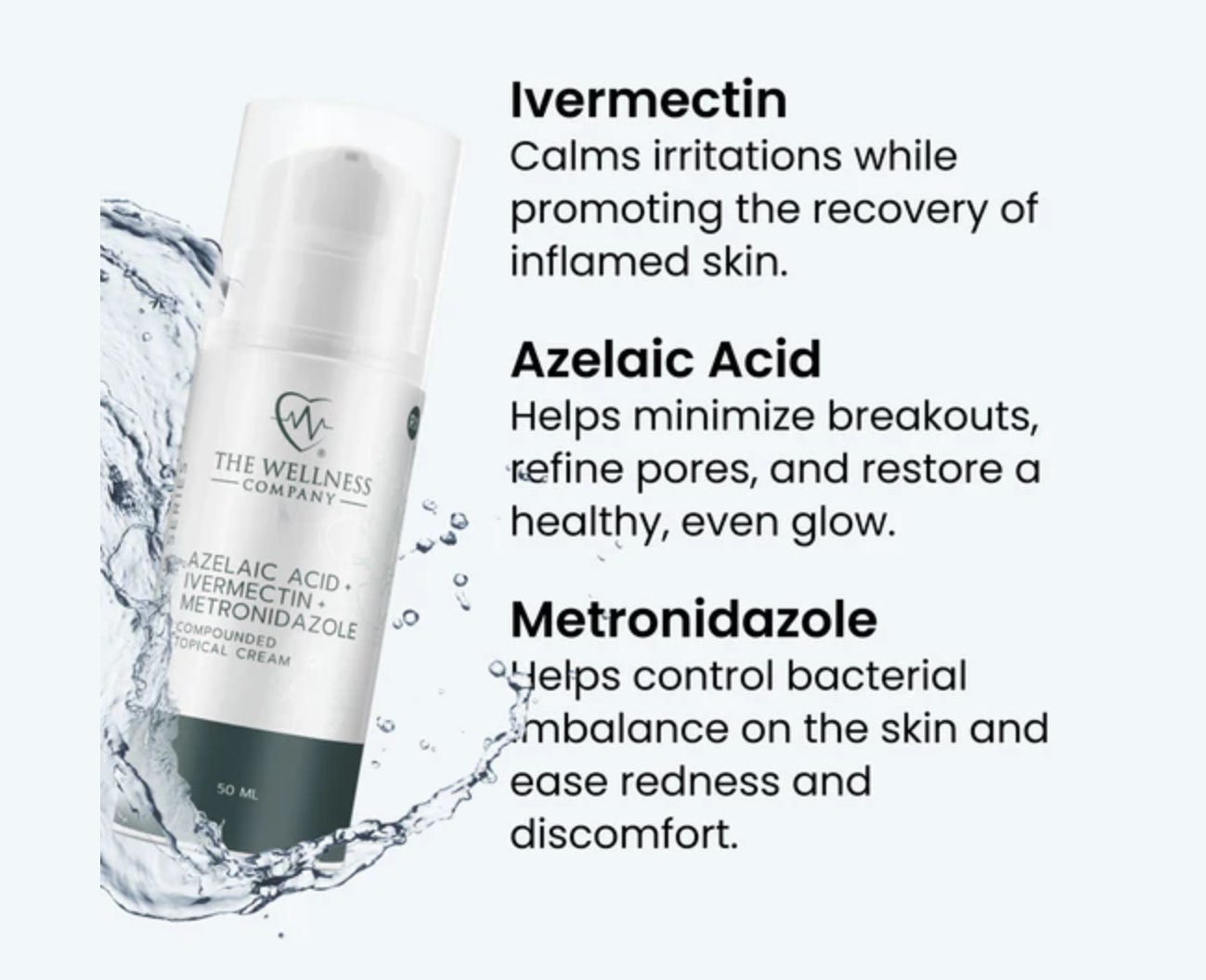Topical Ivermectin for Rosacea, Psoriasis, Eczema, Acne and Scabies (2025)
Rosacea
Indication: Topical ivermectin 1% cream, sold under brand names like Soolantra, is FDA-approved for treating inflammatory lesions (pimples and bumps) associated with papulopustular rosacea.
Mechanism: Ivermectin cream is thought to work through its anti-inflammatory effects and by reducing Demodex mites on the skin. A high number of these mites may contribute to the inflammation seen in rosacea.
Head lice
Indication: Topical ivermectin 0.5% lotion, sold under brand names like Sklice, is indicated for treating head lice in patients six months and older.
Mechanism: Ivermectin paralyzes and kills lice by binding to their nerve and muscle cells. A single 10-minute application is typically sufficient and does not require nit combing.
Off-label uses
Scabies: While not an FDA-approved indication for topical application, clinical studies have shown topical ivermectin to be effective for uncomplicated scabies, with comparable efficacy to permethrin cream. It may be used to treat refractory cases that do not respond to other topical treatments.
Psoriasis: Thirteen case reports suggest that ivermectin may exert anti-inflammatory effects beneficial in psoriasis, potentially through modulation of immune pathways or antiparasitic actions addressing underlying triggers. Ivermectin inhibits nuclear factor-kappa B and cytokine production. The rapid onset of improvement (days to weeks) contrasts with conventional therapies, which often require months.
Other inflammatory dermatoses: Some small case studies suggest topical ivermectin may be beneficial for other skin conditions like perioral dermatitis, seborrheic dermatitis, and acne vulgaris. An emerging application is Spike protein associated skin condition arising after SARS-CoV-2 illness and or COVID-19 vaccination.
The Wellness Company combines ivermectin with azelaic acid and another antimicrobial, metronidazole to provide optimal therapy against persistent acne and rosacea.
References:
- Ivermectin and Fenbendazole in the Treatment of Psoriasis: A Case Series of 13 Patients (2025)
- New indications for topical ivermectin 1% cream: a case series study, Advances in Dermatology and Allergology (2019)


.png)
.png)






Comments
Post a Comment